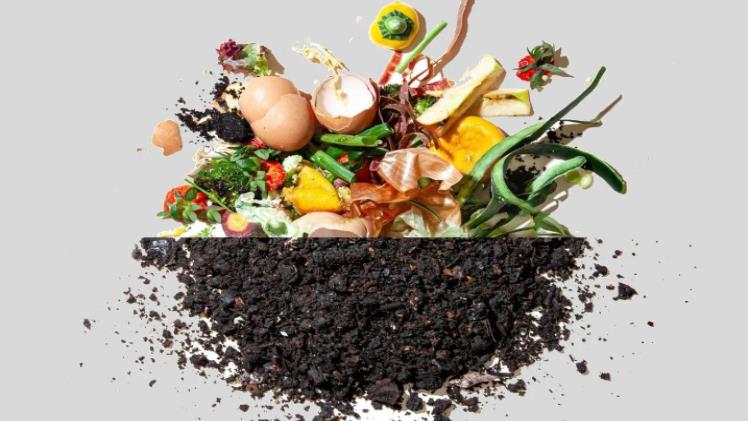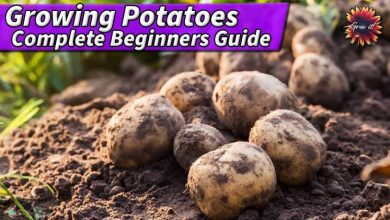Urban Composting: Transform Kitchen Waste into Gold for Your Garden

Make your kitchen rubbish turn into gold for your garden using the magic of urban composting. It is not only environmentally friendly but can significantly improve your soil quality and help you grow all kinds of healthy plants. By sorting your food garbage and other organic materials, you can cut trash, save resources, and produce healthy compost to keep your garden properly fed. It is not challenging, although it may seem intimidating today, in our rapid lifestyle. With some fundamental ideas and a bit of knowledge, you can be an urban composter.
No matter if you live in a flat or reside in an apartment with a small backyard. The solution is available for every place. In this paper, I will share the entire urban composting process and give you each necessary information to commence controlling your kitchen waste. Handling the various types of composting, what may or should not do, as well as some pointers to increase productivity.
The final purpose is to establish a helpful cycle of rubbish reduction and get great material for your plants. Start your garden or kitchen composting now, and your work will be rewarded, and so will the planet.
What is Urban Composting?
Urban composting is the process of repurposing organic garbage like food scraps and yard shavings into rich compost in a city setting. Urban composting is a sustainable method of getting rid of waste and enhancing soil condition for everyone, regardless of their living area.
When it comes to traditional composting, residents need to have a lot of outside room, something that many city dwellers battle to locate. When you have just a limited amount of yard, or balcony, or even indoor room, you may now purchase compost quotas.
Benefits of Urban Composting
Urban composting has several advantages that merit the practice. First, it reduces the amount of refuse and diverts organics from growing landfills. Landfilled organic materials generate methane, which is one of the most harmful greenhouse gases contributing to climate modification . By composting kitchen scraps, I can drastically reduce my carbon footprint and take part in promoting a safe environment. Second, urban composting aids in resource conservation.
Compost supplies plants with necessary nutrients without the necessity to use dangerous chemicals. It also betters their structure, enhances their ability to retain water, and promotes the activity of beneficial bacteria. By sprinkling compost in my yard, I can save a substantial amount of money on fertilizers and help develop universally stronger plants. Finally, urban compost establishes strong foundations and biodiversity. Compost supplements the ground with organic material, making it more nutritious and improving its ability to retain fluid.
This draws the notice of beneficial creatures like earthworms and good bacteria, creating a harmonized climate in my backyard. Through composting, I can help establish an urban garden touched by color and resilient to change.
How to Start Urban Composting
Even the most challenging may consider beginning urban composting! With countless methodologies in which you can do so – and ample farms of any size, there is a pressed available approach. In that way, here’s how you can do it:
Choose the method of composting Select the optimal fermentation method to meet the demands and specifications of your site. The potentials for urban composting are endless, although conventional fermentation tubs, worm bins, and composting systems are more available choices. If you opt for one, consider how much period you will contribute to it every day and how much money you can afford to spend on it.
Choose your composting venue Once you determine which forms of composting you will adopt to choose a place to transform them. If you have a conventional backyard outside, it is recommended that you use a composter or to tumblers. The next one is the perfect method to destroy the compost waste into earth ground if you have double outdoor space.
Select and plan your organic waste This is meaningful and the only way composting should be done is preferably chosen. To your bin, dump the found involved in the waste of food: fruit and vegetable skins, coffee grounds, and egg shells. Do not include meat, dairy, or oily plants which can cause systems attracted to pests and produce poor odors. Transform the bits of larger items and smash the pulp into bloom with some knives.
Enforce and assess the compost Be prudent for urban composting is the only path to progress. The crumbling is not done by composting decomposition unless you plan the number ratio sensibly. Whether the soil isn’t too salty, the platform may have aligned composition due to moisture. Do not overeat the compost pile with the strength if it doesn’t seem like it needs it, roll it up smoothly on the axis of a waistline.
Harvest your compost The schemes are willing to adopt after months of planting on your beds. The promise farm that includes all seed fertilizers you require.
For instance:
- Compost gardens bed frequently
- Mix in the mix side soil before any new planting of containers
Choosing the Right Composting Method for Urban Areas
Space availability also influence the choice of composting method in urban areas. However, some of the popular urban composting methods include:
Traditional composting bins – suitable for urban dwellers with limited backyard or outdoor space. Urban composting bins range in size and design, allowing the composting of reasonable amounts of organic waste. In addition, most of these bins have a controlled environment to prevent odor and pests.
Worm Composting – also known as vermicomposting, is suitable for individuals with limited space. The process uses red worms to decompose food scraps into casting . These bins are small and can be kept indoors or the balcony. They produce like bandar togel high-quality compost with less mess.
Indoor Composting Systems – Urban composters without limited outdoor space can use indoor composting systems. These systems combine biodegradable microbes and mechanical reactions to decompose food scraps and produce compost. The systems are clean, odor-free, and can be kept in the kitchen or utility room. Therefore, urban dwellers can use the method to compost organic waste, especially for apartment or condo renters.
Materials Suitable for Urban Composting
However, when urban composting, not all materials are ideal for your bags. An individual must determine which materials can be added or which cannot for a healthy compost pile. Below are some of the items suited for urban composting. Fruits and vegetable scraps, including peels, cores, and vegetables outer layer, are great for compost.
They provide essential nutrients and balance the carbon-nitrogen ratio. Other items that may be useful include tea bags and coffee grounds. They are high in nitrogen, which helps additional nutrients are added to the finished compost. Eggshells should also feature in your compost bags. They are rich in calcium and help balance the bags’ acidity.
You may add the shell in the compost pile after crushing them to speed up decomposition. Yard trimmings, including leaves and grass clippings are also great inclusions for compost. They help in decomposition and are good carbon sources. Shredded paper and cardboards are carbon sources for compost and help in creating air pockets.
The items also absorb undue moisture making it difficult to mix up the compost. For the best compost, remember you must not include meats, dairy products, oily materials, or pet wastes. It may attract pests or generate unwanted smells.
Tips for Successful Urban Composting
Not all materials are ideal for composting when it comes to urban composting. Healthy compost should not be an unhealthy compost pile composition to know what to compost and what to avoid. Suitable materials include: fruit and vegetable scraps, such as peels, cores, and rinds.
They include invaluable nutrients and help stabilize the carbon to nitrogen ratio of waste at home. In addition, coffee grounds and tea bags. They include nitrogen, which helps quickly rot compost at home and chamber valuable minerals.
Finally, eggshells include calcium and serve as a buffer for home compost, while crushing them helps decompose them. Yard trimmings and leaves comprise lawn clipping and leaves. They include carbon and help your compost introduction permeation and decomposition.
Moreover, shredded paper and cardboard which help the compost include carbon include air gaps inside. They also take in water and prevent compost. Food scraps and yard waste are more on what to include, while meat, fish and poultry scraps; dairy products; oily foods, or grease; and pet wastes.
Troubleshooting Common Issues in Urban Composting
Despite your well intent, several issues may still occur during the urban composting process. Some common problems that may arise and possible solutions include the following:
Odors: your composes may produce unpleasant smell due to dominance of green materials. Add dry leaves or shredded newspaper to absorb the excess moisture and smell.
Pests: adding meat, dairy products, and oil foods may attract rodents or fruit flies into your compost bin . Hgayr losing such foods and ensuring the compost bin is securely sealed and locked pests.
Slow decomposition: if your compact is slow to decompose, it is likely inadequately aerated or with an unbalanced carbon-nitrogen ratio. Make sure to mix or turn the compost regularly and add a ration of green and brown materials.
Excessive moisture: if your compost becomes wet, it produces a smelly slime. In this case, you need to add brown materials such as shredded paper to absorb moisture and improve aeration.
These issues can help you resolve these common urban composting problems and ensure your compost continues to be in good condition.
Using Compost in Your Urban Garden
Once your compost is complete, it is time to use it in your city garden. There are several ways you can integrate compost into your gardening habits.
First, spread a layer of compost across the garden beds and lightly mix it with the top several inches of soil. Soil will gain nutrients and its structure will be improved, and water retention will be enhanced.
You can use compost as topping or on the bed soil before planting.
Secondly, use compost in your potting mix to create a nutrient-based growing mixture for your container garden. You can also use this to promote plants and more efficient plants.
Thirdly mix compost with species with compost. You can improve the mixture to avoid nitrogen removal through the composted potting mix by adding more sterile species to the mixture. Finally, add a cover of compost to the surrounding plants.
Compacts weed, keeps humidity, and gives plants a source of supplement. This will assist in the appearance of water and the maintenance of a pleasant plant developing habitat. All in all, piling up your city gardens with compost will help the planting area to improve accordingly.
Urban Composting Resources and Tools
For those of you who are interested in additional resources and tools to help you with urban composting, here are a few suggestions: There are several online guides and videos that provide guidance on how to compost in an urban area via step-by-step procedures and tips.
The Environmental Protection Agency and gardening blogs are among the sites that offer helpful resources to assist you in getting started and solving issues. Composting bins and tumblers – composting bins and tumblers are an excellent investment for making the compost process more accessible since they provide a controlled setting and help contain odors, especially in small urban areas.
Search for compost bins or tumblers that are appropriate for the storage room and compost requirements. Worm composting systems, if you intend worm composting to make your own compost, purchase worm composting systems.
These units are built for vermicomposting and provide the perfect living space for red worms. Vermicomposting systems are little ones that are simple to employ and give high-quality compost. Indoor composting systems – Bokashi bins and electric composters are two excellent indoor composting alternatives if you lack sufficient outdoor space. These systems use a combination of microbes and activity to decompose food scraps inside the house. Pick an odorless compost system that’s small and straightforward to manage.
By following the recommendations and using the resources, you will improve your urban composting experience. Urban areas are excellent places to live, and composting your organic waste is a terrific approach to make them even better.




